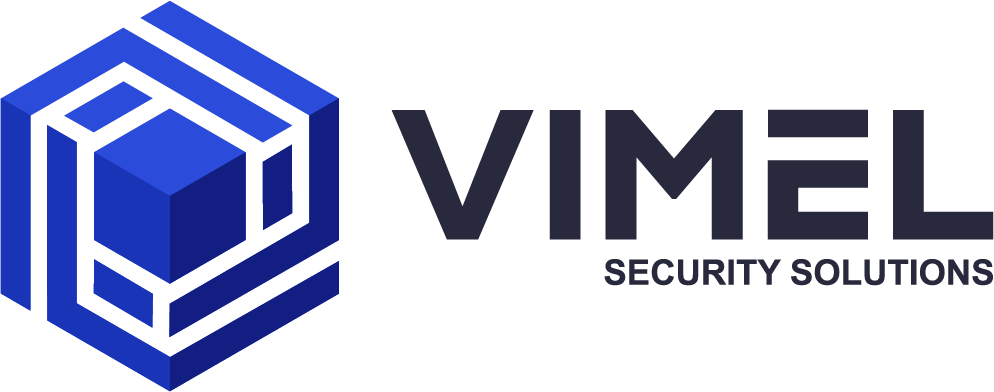
In radiation protection, using radiation dosimeters, personal dosimeters, Geiger counters, ionising radiation detectors, and other essential tools is pivotal. These components are vital for safeguarding human health and the environment from potential hazards of ionising radioactivity. A dosimeter measures and records an individual's cumulative exposure, while a personal dosimeter monitors the radioactive dose received. Geiger counters and ionising detectors are portable instruments for detecting and measuring levels. Monitoring ensures safety compliance and detects deviations, while radiological protection minimises risks and implements safety protocols. Gamma and X-ray dosimeters provide precise dose measurements. Radiation safety equipment and dosimetry badges protect workers and assess their radioactive exposure accurately. Environmental monitoring surveillance levels and pocket dosimeters offer quick dose measurements. This comprehensive framework, including exposure assessment, ensures effective management and mitigation of radioactive hazards, safeguarding individuals and the environment.
Radiation Dosimeters Geiger Counters
Radiation measurement:
Radiation dosimeters and Geiger counters share a fundamental feature: accurate radiation measurement. These devices precisely quantify radioactive levels, enabling effective monitoring and assessment in various contexts. They are essential for professionals in environments, emergency responders, and nuclear industry workers. These instruments can detect and measure ionising radioactivity, including alpha, beta, and gamma, which are critical in assessing potential exposure risks. Their precise measurement empowers individuals and organisations to make informed decisions about radiological protection and safety protocols. These devices ensure careful tracking and evaluating levels in medical facilities, industrial settings, or environmental contexts. Their accuracy significantly contributes to maintaining a safe and secure environment for human health and the ecosystem.
Personal dosimeter:
An indispensable tool, the personal dosimeter, ensures emotional safety by measuring and tracking an individual's radiation exposure over time. This specialised dosimeter proves vital in professions and industries with potential ionising radiation exposure. Monitoring levels in real-time provides crucial information about an individual's cumulative dose. This enables accurate assessment and management of potential health risks associated with exposure. Nuclear workers, radiologists, and emergency responders rely on this reliable companion to provide valuable data for analysis and evaluation. With its ability to precisely measure and record levels, the personal dosimeter acts as a proactive safeguard, empowering individuals to maintain awareness of their exposure levels and take necessary precautions for their well-being.
Ionising radiation detector:
An ionising radioactivity detector is an instrument capable of detecting and quantifying various types of ionising radiation, including alpha, beta, and gamma radioactivity. Geiger counters are one of the field's most widely recognised and utilised devices within these detectors. Based on ionisation principles, Geiger counters generate electrical signals upon the device's interaction between ionising and gas. These electrical signals are then quantified, enabling identifying and measuring specific types and intensities of ionising radioactive. Other ionising radioactive detectors with specialised applications and capabilities contribute to a comprehensive suite of tools for monitoring and evaluating radioactive levels in various contexts. By reliably detecting and quantifying ionising radioactivity, these detectors play a crucial role in ensuring safety measures to protect individuals and the environment from potential hazards.
Radiation monitoring:
Monitoring is a critical practice involving specialised devices continuously monitoring levels in various environments. These devices play a crucial role in ensuring the safety of workers, the public, and the environment. By constantly assessing radioactive levels, they can promptly detect deviations from normal or safe levels, allowing immediate response and intervention when hazardous levels are detected. The data gathered through monitoring provides valuable insights into the overall radiological safety of a specific area or facility, enabling authorities to implement appropriate protective measures when necessary. From nuclear power plants and medical facilities to industrial settings and environmental contexts, monitoring is an indispensable tool that enhances safety protocols and safeguards against potential radioactive hazards. Through real-time assessment and vigilance, these devices contribute significantly to creating a secure environment where potential risks from ionising radioactivity are effectively managed and minimised.
Radiological protection:
Radiological protection is paramount in radiation safety, relying on indispensable tools like dosimeters and Geiger counters. These devices safeguard individuals and the environment from harmful radioactive exposure. Dosimeters are designed to measure and record an individual's cumulative radioactivity dose, enabling accurate exposure tracking over time. Conversely, Geiger counters act as portable ionising radiation detectors, promptly detecting and quantifying various types. Radiological protection professionals employ these tools to assess hazards and implement appropriate safety protocols. Whether in medical, industrial, or nuclear settings, the continuous monitoring and measurement of exposure with dosimeters and Geiger counters form a vital foundation for ensuring worker and public well-being while effectively minimising potential risks associated with ionising radiation.
Gamma radiation dosimeter: The specialised device, the Gamma radiation dosimeter, is intended to measure and quantify gamma radioactivity. Its focused functionality proves especially valuable in environments with gamma sources, such as nuclear facilities, radiology departments, and industrial settings. The dosimeter's precise capabilities enable accurate assessment of gamma radioactive levels, providing valuable data for evaluating potential exposure risks and implementing necessary safety measures. Due to its sensitivity to gamma radioactivity, this dosimeter is indispensable for workers and professionals handling radioactive materials or ionising sources. It is a proactive safeguard that enables continuous monitoring and swift response to unexpected spikes or level fluctuations. By using the Gamma radioactivity dosimeter, individuals and organisations can proactively ensure the safety and well-being of personnel and protect the surrounding environment from potential hazards linked to exposure.
X-ray dosimeter:
The X-ray dosimeter is a specialised device crucial in measuring exposure related to X-ray applications. Its focused design ensures accurate and precise measurement, making it an essential tool in medical and industrial settings where X-ray radiation is utilised. In medical environments, X-ray dosimeters are commonly worn by healthcare professionals, such as radiologists and technicians, to monitor their exposure to X-ray radiation during procedures. This allows for carefully assessing their cumulative dose, ensuring their safety over time. Similarly, in industrial settings, where X-ray applications are used for various purposes, the X-ray dosimeter provides valuable data for workers who may be exposed to X-ray radiation during their tasks. By using the X-ray dosimeter, professionals in these fields can confidently implement safety protocols and minimise potential risks associated with X-ray radiation, safeguarding their well-being and that of others in their work environment.
Radiation safety equipment:
Radiation safety equipment is paramount in ensuring the well-being of individuals working with ionising radioactive. This equipment's essential components are dosimeters and Geiger counters, which safeguard workers and ensure compliance with stringent safety regulations. Dosimeters are designed to measure and record an individual's cumulative exposure, allowing for accurate radiation dose monitoring over time. They act as proactive safeguards, enabling workers to maintain awareness of their exposure levels and take necessary precautions to minimise potential risks. On the other hand, Geiger counters serve as portable ionising detectors, capable of promptly detecting and quantifying various types of radiation. This real-time monitoring capability empowers workers to identify hazardous levels swiftly, enabling immediate action to mitigate risks and protect themselves from potential harm. By incorporating dosimeters and Geiger counters into their radioactive safety equipment, organisations can ensure the safety and health of their workforce while adhering to regulatory standards that govern exposure limits.
Dosimetry badges:
Essential tools in protection, Dosimetry badges continuously monitor an individual's exposure during work or in radioactivity-prone environments. These badges are designed to be worn by workers, such as medical personnel, nuclear industry professionals, and radiation technicians. The badges contain sensitive detectors that measure and record the cumulative radioactive dose the wearer receives over time. By wearing these badges, individuals can proactively monitor their exposure levels and ensure they remain within safe limits. The real-time data collected by dosimetry badges provides valuable information for safety assessment and compliance with regulatory standards. Regular analysis of the data allows organisations to identify potential exposure risks, implement appropriate safety measures, and ensure the well-being of their workforce. Dosimetry badges serve as an essential safety measure, enabling workers to maintain awareness of their radiation exposure and take necessary precautions to protect themselves from potential radiation hazards.
Environmental radiation monitoring:
Critical practice: Environmental radioactive monitoring involves using dosimeters and Geiger counters to monitor and measure levels in the surrounding environment diligently. These instruments are vital for assessing potential radiation risks and enabling timely responses to mitigate hazards. By continuously monitoring levels in real-time, environmental monitoring provides crucial data for evaluating the area's safety, especially in locations with nuclear facilities, radioactive materials, or other sources of ionising radioactivity. With dosimeters and Geiger counters in place, authorities can promptly detect unexpected fluctuations in levels and take proactive measures to protect the public and the environment from harmful exposure. This proactive approach ensures that potential risks are identified early on, allowing for the implementation of necessary safety measures to safeguard the community's well-being and preserve the integrity of the ecosystem.
